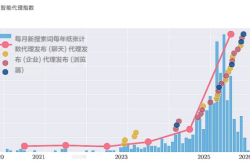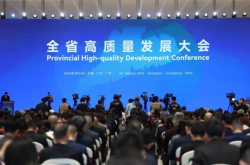Why Shenyang Emerges as Northeast China's AI Hub? The Role of Baidu
![]() 07/11 2025
07/11 2025
![]() 809
809
From the "Oriental Ruhr" to the "First AI City in Northeast China," Shenyang, an old industrial base, has reached a pivotal point in its AI evolution.
On July 10, Ji Zongqi returned to his "second hometown" of Shenyang to attend the opening ceremony of the Shenyang AI Industrial Park. As the general manager of the Shenyang base of Zhejiang EGO Smart Technology Development Co., Ltd., he studied here for seven years and graduated three years ago. However, due to the lack of attractive AI job opportunities for young people in Shenyang at that time, he moved south to Hangzhou.
But in the past two years, Ji Zongqi has frequently traveled between the two cities as Shenyang strives to become the "First AI City in Northeast China".
With Shenyang approved as one of the seven "national data annotation base construction cities" last year, and Shenyang partnering with leading enterprise Baidu to construct an AI industrial park encompassing the entire industrial chain through the nation's first "four ones" model, Ji Zongqi has witnessed his second hometown nurturing and unleashing enormous potential in the AI industry. The four sleek modern buildings in the park have also become one of Shenyang's iconic landmarks, a source of pride for Ji Zongqi.
As the burgeoning new AI industry landmark in Northeast China, the opening ceremony of Shenyang AI Industrial Park was "brief but enthusiastic." Wang Xinwei, deputy secretary of the Liaoning Provincial Party Committee and governor, and Baidu founder Li Yanhong jointly attended the opening ceremony of Shenyang AI Industrial Park (Phase I).
Many participants and settled enterprises were impressed by the remarkable progress of completing the main structure in 88 days and transitioning from blueprint to opening in 20 months.
Baidu and local governments have jointly constructed the largest intelligent AI computing infrastructure cluster. The first batch of 40 companies, including Tongsuan Interconnection, Xin'an Century, and Inspur Information, have settled in, covering the entire industrial chain from chip research and development, AI computing services, data annotation, to large model applications. The park has immediately "linked" up the industrial ecosystem upon its opening.
At the opening ceremony, Shen Dou, executive vice president of Baidu Group and president of Baidu Intelligent Cloud Business Group, stated, "This marks a new chapter in the cooperation between Baidu and Shenyang. Baidu will seize this opening as an opportunity to further increase its investment in collaboration with Shenyang and work alongside partners to infuse new energy into the high-quality development of Shenyang's digital economy."
01
The Commitment and Action of a Traditional Industrial City
"I sense the pace at which Shenyang is racing into the AI era," said Xiao Han, general manager of data annotation company CloudEyes Data, which has set up base in Shenyang AI Industrial Park. As a native of Shenyang, he was deeply moved by the opening ceremony and eagerly anticipates the advancement of the AI industry in Shenyang and even Liaoning.
In his view, this AI landmark reflects Shenyang's strategic resolve to embrace the new technological wave in the AI era, and it also underscores the urgency of a traditional industrial city to seize strategic opportunities.
Those familiar with Shenyang know that as the cradle of China's industry, this city has witnessed the dawn of China's industrial development. Shenyang once smelted the first furnace of molten steel in New China and is also the birthplace of many industrial milestones such as the first electromagnet, the first batch of aircraft tires, and the first 250-ton tower crane. Shenyang's Tiexi District was also known as the "Oriental Ruhr" and the "Hometown of Machine Tools".
However, in the new era, it objectively encountered transformational challenges. The development of traditional industries is under pressure, compelling the upgrading and transformation of local industries.
At the same time, domestic cities have launched fierce competitions to seize AI opportunities, with Chengdu, Chongqing, Wuhan, Hefei, and others actively deploying AI industries. How to avoid falling behind in the new technological wave may also be a significant source of urgency behind the "Huanggu Speed" of Shenyang's AI industry construction at present.
Over the past few years, Liaoning has been promoting the upgrading of industry towards high-end, intelligent, and green development through the implementation of the three-year action plan for comprehensive revitalization and new breakthroughs. Shenyang AI Industrial Park is the latest move in the local AI industry ecosystem construction, undoubtedly helping stimulate local digital economy innovation vitality and providing new momentum for the development of "AI+" in the region.
This move also shoulders the mission of talent cultivation. Currently, Liaoning and even the entire Northeast region are facing the phenomena of aging and population outflow, which also pose considerable challenges to the development of local emerging industries. AI is a youthful industry, and developing the AI industry can retain young talent in the local area and also help emerging industries truly take root locally.
From the perspective of industry observers, Shenyang and Liaoning have undertaken substantial efforts to develop the emerging AI industry. The accumulation of local industrial resources and talent reserves has also laid the foundation for them to seize this wave of AI.
In June this year, the "Implementation Plan for Promoting Innovative Development of Artificial Intelligence in Liaoning Province" was released, outlining the development goals and directions for the local AI industry from the top-level design level.
It mentions that by 2027, the computing power scale will exceed 5000 PFLOPS, 5 vertical large models will be cultivated, 100 benchmark scenarios will be created, 300 AI enterprises above a certain size will be realized, and the scale of the core AI industry will reach 100 billion yuan.
Under the top-level design, the accumulation of local talent and industrial resources in Northeast China has become a crucial support for the development of the local AI industry.
The past profound industrial accumulation has provided vast scenarios for AI development. The traditional industries in Liaoning and Shenyang are becoming the optimal testing grounds and "value amplifiers" for AI implementation. For example, equipment manufacturing enterprises such as Shenyang Blower Works Group and Siasun can leverage AI to address the needs of personalized production and fault prediction, while steel enterprises in the raw material industry can use AI to optimize energy consumption, and the automotive industry can use AI to solve flexible supply chain and intelligent driving issues.
AI is also accelerating its implementation in vertical scenarios, and abundant talent reserves are conducive to the research and development and implementation of vertical scenario AI. Even in the short video field, Shenyang boasts leading institutions such as Lu Xun Academy of Fine Arts and Shenyang Conservatory of Music.
Xiao Han also observes that the low cost of living in the local area facilitates talent settlement, and there are also cost advantages compared to other first-tier regions.
The opening of Shenyang AI Industrial Park is also a strategic choice made by Baidu after positioning itself in a strategically important city and resonating with the current industrial development direction of Liaoning.
Currently, Liaoning is vigorously developing the AI industry, and Baidu's core business aligns with the direction of Liaoning's industrial development. Against the backdrop of a firm belief in the prospects for the revitalization and development of Liaoning, the two parties have already embarked on strategic cooperation in December last year. At that time, Liaoning Province and Baidu signed a strategic cooperation framework agreement, and Huanggu District of Shenyang City and Baidu Intelligent Cloud (Shenyang) Technology Co., Ltd. signed a framework cooperation agreement.
The cooperation between the two parties can also form complementary advantages. As a leading enterprise in the field of large models and AI, Baidu has a full-stack layout in chips, frameworks, models, and applications, with a mature AI engineering system. The technical advantages of Baidu Intelligent Cloud Qianfan Large Model Platform, combined with local industrial scenarios, and the strategic, policy, and industrial resources of Liaoning superimposed with Baidu's technical ecosystem, are expected to create a new paradigm for regional revitalization and technology application implementation.
02
What Exactly is the First "Four Ones" Model?
Amidst the significant reshuffling of the overseas data annotation industry, China, as one of the countries with the fastest growth in the global AI industry over the past one or two years, has witnessed rapid growth in data demand, and the field of data annotation has also evolved accordingly.
In the establishment of Shenyang AI Industrial Park this time, Shenyang has blazed a new trail by introducing the nation's first "four ones" model, striving to build a comprehensive and replicable AI industry closed loop from infrastructure to application implementation.
The "four ones" refer to: a high-performance AI infrastructure base, a data annotation base with a value of over 100 million yuan, a set of AI large model and data element circulation platforms, and an industrial application scenario exhibition center. Compared to traditional parks that mostly focus on one or two directions, "the 'four ones' model operates on four fronts in parallel, achieving coordinated efforts," said Ji Zongqi of EGO Group.
Among them, the high-performance AI infrastructure base relies on Baidu Intelligent Cloud's autonomous and controllable, software-hardware integrated AI full-stack solution. Currently, this infrastructure is already operational and serves as the foundation for model training, inference, and deployment.
Secondly, data annotation is moving from "behind the scenes" to the "main stage".
Currently, models are rapidly iterated on a "weekly" basis, and model refinement and industry model training are particularly reliant on high-quality data, with data annotation being a crucial link. The second core project of the industrial park is precisely a data annotation base with a planned output value of over 100 million yuan. Ji Zongqi introduced that the park's goal is to form a cluster of data annotation industries and create a benchmark in Northeast China.
In 2024, Shenyang was selected as one of the first batch of "National Data Annotation Base Construction Cities." Shenyang has been active in the field of standard setting, with relevant units having participated in the compilation of one international standard, two industry standards, two local standards, and six group standards.
"The data annotation industry is a knowledge-intensive and technology-intensive industry that pursues high quality and low cost," Xiao Han told Digital Frontier. Shenyang has talent and industry resources, providing ideal "soil" for the data annotation industry. Baidu is also one of the first major players to layout data annotation and will deepen its data service layout in the industrial park to lay the foundation for model fine-tuning and industry model customization.
"Over the past decade, data annotation has primarily served internet giants. Starting from 2025, traditional industries will gradually become the mainstay of data demand in the second stage of the AI wave," said Xiao Han. His team has already provided customized data services for a central enterprise in the energy industry. "A production value of 100 million yuan for the annotation base is feasible and is a conservative target in the long run."
"We are prepared to enter the park," he said. CloudEyes has reserved experts in 14 languages covering 8 academic disciplines and has made technical reserves in speech recognition, visual recognition, large language models, and video analysis. "In the future, we must especially provide traditional enterprises with data bases and expert services to support the full-process intelligent transformation."
Thirdly, the circulation platform opens up the "highway" between models and data.
The AI large model and data element circulation platform is a key hub connecting data and applications. The platform leverages Baidu Intelligent Cloud Qianfan Large Model Platform as its core, carrying functions such as model invocation, fine-tuning, and application development.
Shenyang is tackling the "tough nut" of data element circulation. "It requires exploration in areas such as trading platforms, data merchant cultivation, application scenarios, and the introduction of data source units, but this is a promising start," said Xiao Han. In contrast, model circulation is more mature. Baidu Intelligent Cloud Qianfan Large Model Platform already has 48,000 fine-tuned models and millions of applications, providing support for local enterprises to implement AI.
For local governments, this platform is an essential lever for cultivating the local AI development ecosystem; for Baidu, it is the "chassis" for expanding the application market, building an ecosystem, and exploring new regulations on data elements.
Finally, the scenario exhibition center is a window for building trust.
The Industrial Application Scenario Exhibition Center is the most intuitive presentation of results in the "four ones" model. For the government, it is pivotal for external investment attraction and industry promotion; for Baidu, it is also an ideal window for technology and marketing. Yesterday, a large number of participants visited the center. The center has already showcased mature cases such as smart travel, smart healthcare, AI urban management, and AI education.
The "four ones" model is a core set of systematic industrial strategies. Shenyang AI Industrial Park is forming a layout of "1 park + 4 centers + N scenarios" around this model, with the park planning to achieve an output value of over 10 billion yuan in five years. Baidu Intelligent Cloud will also gain robust growth momentum from it. In the first quarter of this year, its revenue growth rate reached 42%. With the aid of the industrial park, Baidu not only expands its market share but also further "positions" itself in terms of ecology and technology barriers.
03
The Radiation Effect of the New Paradigm
The "four ones" model of Shenyang AI Industrial Park did not emerge overnight; it is the culmination of Baidu's gradual exploration and refinement in collaboration with cities across multiple locations.
Ji Zongqi noted that Baidu and EGO have previously collaborated to establish and operate new-type industrial parks in numerous cities nationwide. In Yancheng, Jiangsu, after constructing the Baidu Intelligent Cloud Industrial Base, the two companies discovered that numerous enterprises could access the metaverse platform Xirang to realize digital twin scenarios and resolve practical issues. In the Ganjiang New Area of Nanchang, Jiangxi, the data annotation base significantly boosted local employment and provided tangible industrial driving benefits for the local government.
These project experiences and positive feedback have fortified Baidu's resolve to establish the "four ones" model with Shenyang AI Industrial Park and clarified the path of parallel multi-line and cluster promotion. "After the industrial park is established, we aspire to genuinely drive the industrial cluster," said Ji Zongqi.
AI talent cultivation is another pivotal task for the industrial park and the local government. Taking data annotation as an example, it is no longer confined to low-threshold positions but is evolving towards high-end and specialized roles, gradually becoming a "data think tank" upstream in the industrial chain. The talent system construction will also incorporate Baidu certification assessments to provide professional support for subsequent development. Liaoning Province is also a key partner in Baidu's "10 Million AI Talent Cultivation Plan." For a long time, Baidu has closely cooperated with universities in Liaoning Province and has established a multi-tiered talent cultivation system at Northeastern University, Dalian University of Technology, and others. By jointly constructing the Pinecone Talent Practice Base, numerous high-quality AI engineering talents have been further nurtured.
The future development of the industrial park also presents challenges. Ji Zongqi acknowledged that the primary objective is to demonstrate to enterprises the opportunities in Northeast China and alter the stereotypical impression that "investment does not cross the Shanhaiguan Pass." To this end, EGO plans to introduce external high-quality enterprises to Shenyang through existing enterprise resources and industry associations in Jiangsu, Zhejiang, and Shanghai, and provide technical support and business opportunities to gradually thrive the industrial ecosystem.
Certain challenges stem from the industry. For instance, central and state-owned enterprises exhibit a strong willingness to engage in data elements. "They possess the willingness and data, but lack service providers capable of transforming their data into high-quality data products and realizing value monetization," said Xiao Han. This is precisely the capability that ecological enterprises in the industrial park urgently need to address. "The pressure is on us. We must explore a model that satisfies and earns the trust of large enterprises, encouraging them to willingly cooperate by sharing their data."
Additionally, regional competition, talent and enterprise retention, profit models, and other issues are also challenges that the sustainable development of the park must confront. Against this backdrop, Baidu is continuously accelerating its collaborative layout with local governments to promote the implementation of the AI industry through a more systematic cooperation model.
Industry observers have noted that Baidu's pace of cooperation with local governments is quickening, and city-level AI collaboration is deepening. On June 26, Baidu founder Li Yanhong met with Tianjin Municipal Party Secretary Chen Min'er, and the two sides conducted in-depth discussions on intelligent computing power, large model applications, among other topics, to propel the "clustering and chaining" of Tianjin's AI industry.
This is not the first collaboration. As early as 2023, Baidu signed a strategic framework agreement with the Tianjin Municipal Government to cooperate on infrastructure construction and industrial scenario implementation. According to the agreement, Baidu will establish a "Digital Industry Innovation Base" in Jinnan District, Tianjin, encompassing the "Qianfan Large Model Empowerment Center" and the "Data Annotation Base," to serve local AI developers and ecological enterprises.
In specific applications, Baidu has jointly developed an exclusive large model for the chemical industry with China Tianchen Engineering Corporation to assist in 12 scenarios, including standard interpretation and design recommendation; collaborated with Sinopec Sinopec to build a smart factory platform; and promoted a digital twin water conservancy platform with China Water Resources Beifang Investigation, Design, and Research Co., Ltd. These projects have laid a solid foundation for the development of AI in Tianjin.
Jinan is another exemplary case of Baidu's collaboration. Baidu has established an intelligent computing center and data annotation base in the region, deeply engaging in the intelligent transformation of government affairs, education, transportation, energy, and other sectors, and assisting universities in constructing an AI talent incubation platform. In terms of "vehicle-road-cloud integration," Baidu has also partnered with Jinan to tackle core technologies such as cloud control platforms and high-precision maps, exploring new formats for data operation and scenario services.
Now, building upon the accomplishments of Phase I of the Shenyang AI Industrial Park project, Phase II is relentlessly progressing to establish "one center + four bases," namely, large model application, data elements, live e-commerce, and talent training bases, to create an AI industrial park anchored in Shenyang and radiating to the three northeastern provinces.








